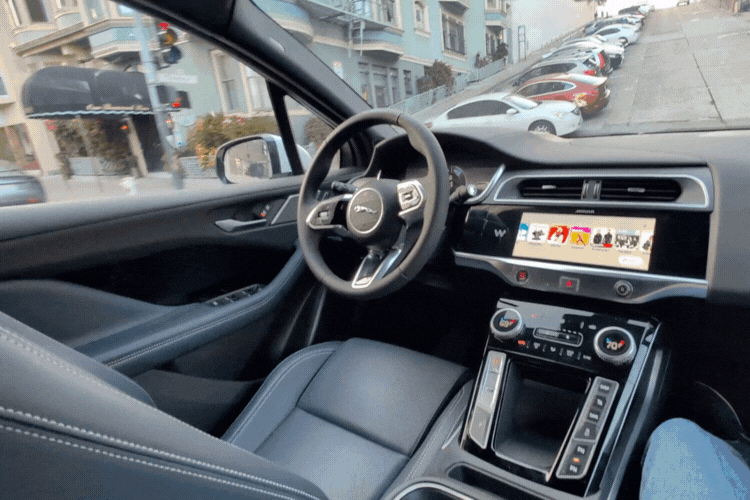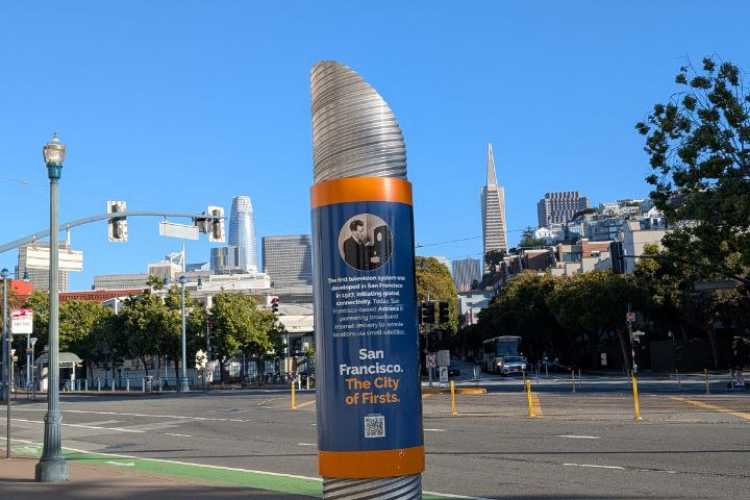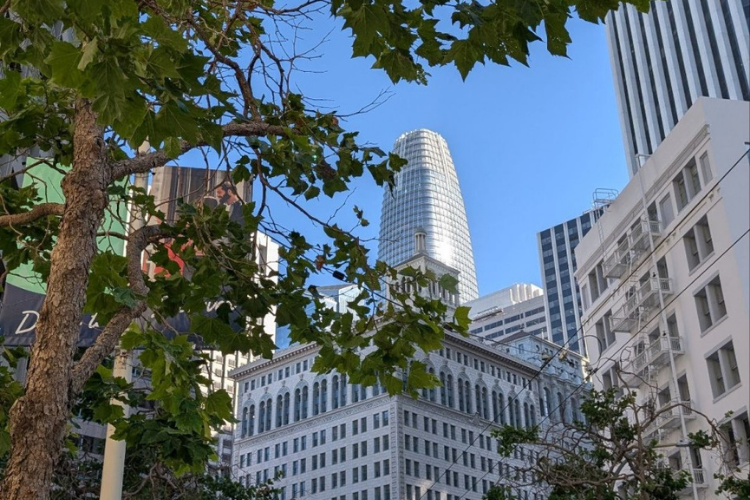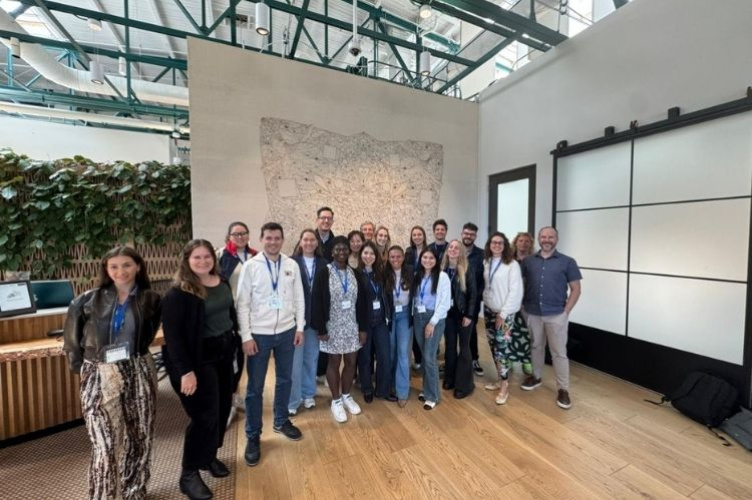Our EMDIEL cohort recently travelled to San Francisco
for the fourth module of the programme
Alex Shaman, a participant in the 2025 EMDIEL class shared his impressions of this deep dive into Silicon Valley’s defining ecosystem. Here’s what he has to say about his experience.
Perhaps the most fitting place to kickstart real innovation. The week in San Francisco was incredibly intense.
The Bay Area truly embodies innovation and digital transformation. And it’s already happening: driverless taxis (Waymo and the soon-to-launch Zoox), robotic baristas in coffee shops, full openness to AI, and much more. Big budgets, constant momentum, and above all the fearless spirit of local entrepreneurs make the Bay Area a true island in an ocean of conservatism.

As part of the ESCP group, we visited Berkeley and Stanford, OpenAI and Microsoft. Separately, I had a number of meetings with Thomson Reuters, Microsoft AI, CBC Bank, and Palo Alto Networks. While it’s still too early to draw final conclusions, some insights are already clear.
A Culture of Fearless Experimentation
People here are not afraid of innovation. Even those who are skeptical or cautious are willing to take a risk and try a mindset that completely aligns with my own.
Speed and Precision at Every Level
At the mid-level, everything moves incredibly fast even a single minute is valued. Sometimes this borders on rudeness. Yet at the top level, decisions are clearly made in quiet, backchannel conversations often over dinner in Michelin-starred restaurants, accompanied by discussions about the future, cognitive psychology, and behavioral science in the context of Big Data and AI. In these moments, no one is in a rush.

Corporate Willingness to Shift Paradigms
Major corporations are actively exploring paradigm shifts. Very soon, we’ll see a new web architecture where websites are no longer the primary entry point. At the same time, these companies are open to innovative approaches in cybersecurity. It’s particularly striking that ideas previously ignored or dismissed by European firms including local branches of global companies sparked genuine interest from decision-makers at the headquarters of major U.S. corporations. For instance, the “Contrast” concept in cybersecurity drew mockery from some European players, yet was taken seriously by U.S. firms and their central offices.
Realistic Pre-seed Funding for Real Work
Here, $2 million for pre-seed, pre-profit MVPs is entirely within reach. As we know, it’s nearly impossible to build a competent team for under $1 million these days. That’s a crucial point: there’s a real appreciation here for the value of engineers, designers, and others who are ready to devote part of their lives to a startup and work with the quality they’d bring to their own ventures. Few countries can rival the U.S. in terms of venture capital. In most parts of the world, companies and funds struggle to approve even $100,000 which barely covers the annual salary of two good developers. And in 2025, you simply can’t build anything high-quality with such a small budget. That kind of money can only be lost gracefully.
No Nationalism, No Prejudice Just Openness
Perhaps one of the most refreshing aspects of the Bay Area is the complete absence of nationalism or prejudice toward any nationality. Sorry to say it, but compared to places like the Netherlands or France where you constantly have to think about hiding your place of birth (often in vain) this environment is a breath of fresh air. Here, it simply doesn’t matter where you come from. What matters is what you build, what you know, and how you think. That’s how it should be.
Clusters That Transcend Politics
Taken together, all of this makes one thing clear: the United States doesn’t need to “become great again” it never truly lost that status. And it certainly has nothing to do with Trump. Clusters like Boston and San Francisco exist beyond nations, beyond conflicts, beyond politics. Science moves forward here not because of slogans, but because of culture, freedom, and long-term thinking. And that is truly inspiring.
Are there problems in this city?
Of course there are and even more across the country. But these problems feel temporary. The sense of momentum, the vibe of a great future, is truly in the air and it’s incredibly energizing. Why have all cutting-edge Western projects always been and will continue to be based here? The vibe matters, yes. But in the end, this is about money. And when you look at the fundamentals, every alternative location for launching a new project starts to look… well, questionable at best.
So let’s keep it simple and look at one chart it speaks for itself:
If your startup generates $1 million in revenue tomorrow with a 35% margin, then…In the US you’ll be highly profitable and wealthy. In the Netherlands – you’ll earn less than a supermarket cashier. In France you’ll end up in debt! That says it all.

Notes & Assumptions:
-
VAT in EU is due for SaaS/API services delivered to individuals or businesses in Europe unless invoiced B2B with valid VAT ID. Input VAT on eligible expenses (assumed 50% of non-payroll expenses) reduces VAT payable.
-
France and Netherlands enforce mandatory founder salary, subject to full payroll taxation, which is not subject to VAT.
-
USA (Delaware + CA) allows founders to defer salary, reducing mandatory costs.
-
Corporate income tax is charged on taxable profit (Net Revenue - Expenses). Estimates assume 65% expenses of gross revenue.
-
Does not include benefits like R&D credits, grants, or incentives, which could lower the burden, especially in NL/FR.
-
Negative net profit in France indicates a loss due to high mandatory costs and taxes.
-
VAT payable: €119,583 (Netherlands) and €117,667 (France) after input VAT offset, but this does not affect net profit directly as it is collected from revenue.

Campus
